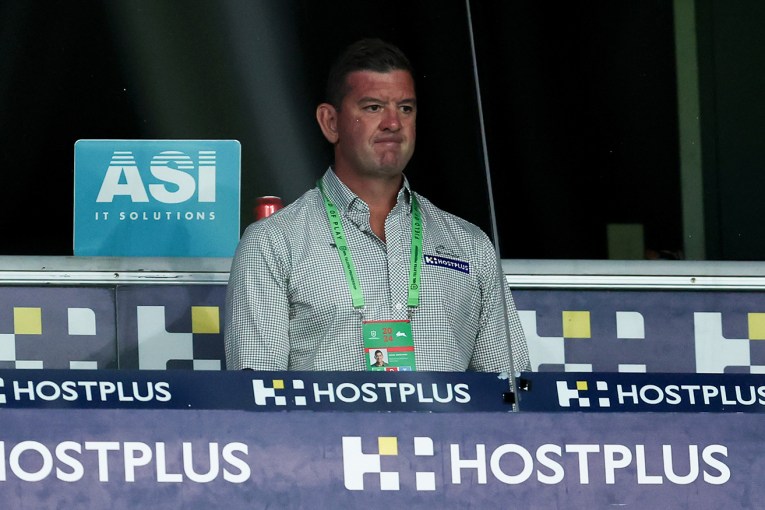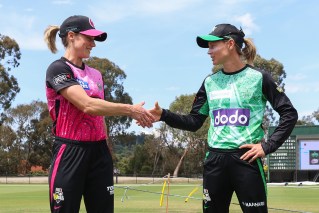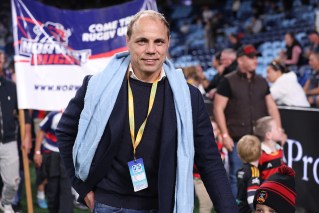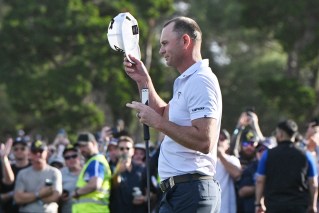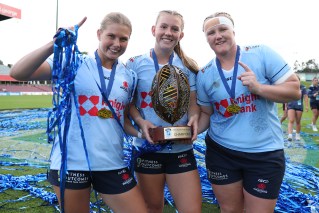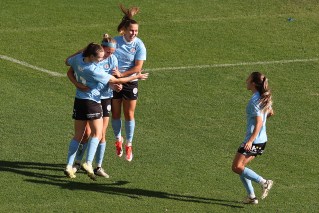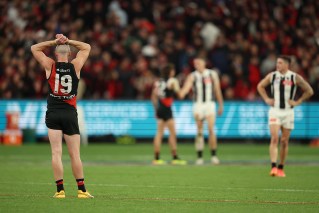World Athletics bans transgender women athletes
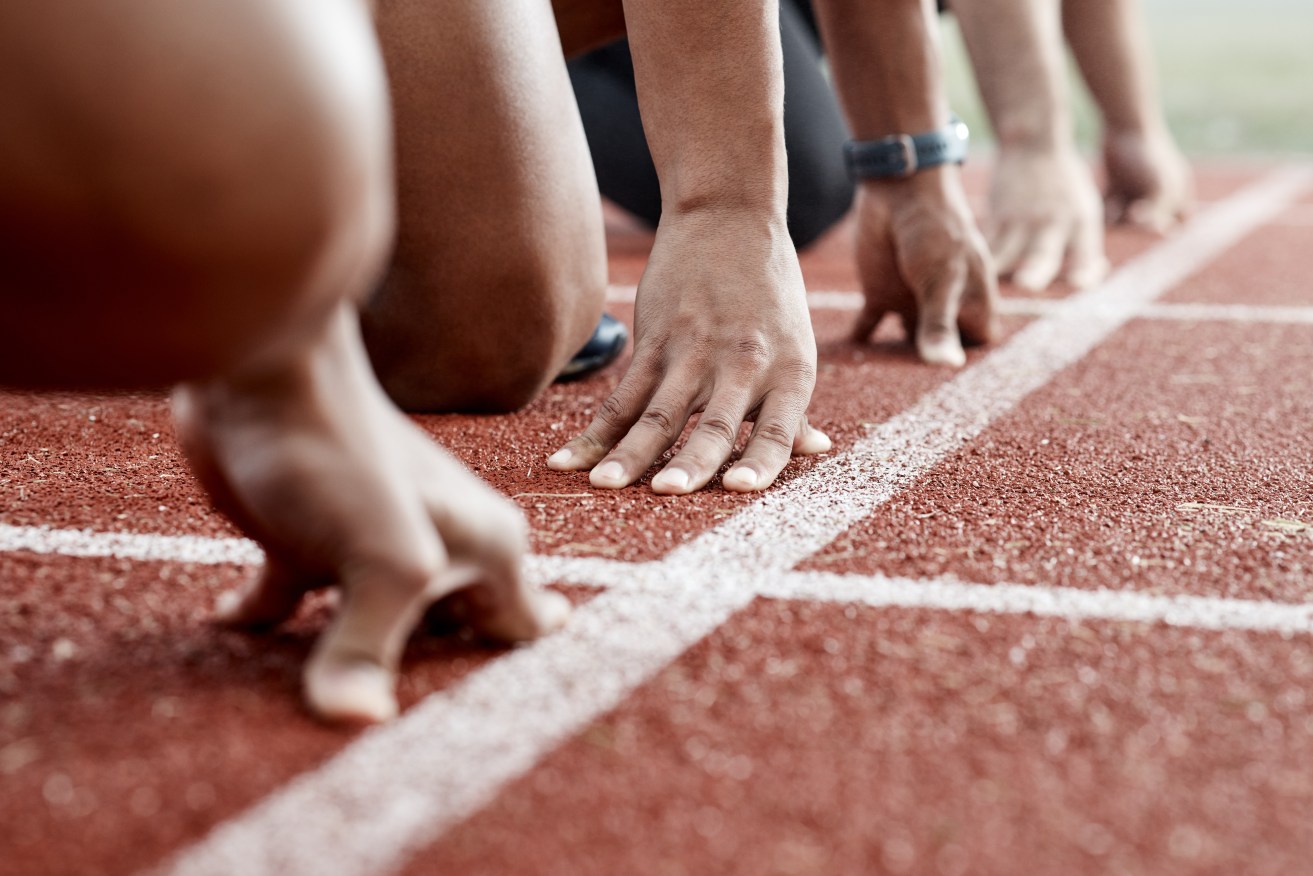
Track and field has banned transgender athletes from international competition. Photo: AAP
Track and field has banned transgender athletes from international competition while adopting regulations that could also keep Caster Semenya and other athletes with differences in sex development from competing.
In a pair of decisions expected to stoke outrage, the World Athletics Council adopted the same rules as swimming did in 2022 by deciding to bar athletes who have transitioned from male to female and have gone through male puberty.
No such athletes currently compete at the highest elite levels of track.
Another set of updates, for athletes with differences in sex development (DSD), would affect 13 athletes, WAC president Sebastian Coe said.
They include Semenya, a two-time Olympic champion at 800 metres from South Africa who has been barred from that event since 2019.
Semenya and others had been able to compete in events outside the restricted range of 400-metres to one mile (1600 metres). They will now have to undergo hormone-suppressing treatment for six months before competing to be eligible.
Semenya has been trying to compete in longer events. She finished 13th in her qualifying heat at 5000 metres at the world championships last year.
To compete at the 2024 Paris Olympics, she would have to undergo hormone-suppressing treatment for six months, something she has said she will never do again, having undergone the treatment a decade ago under previous rules.
Coe told a news conference that the decision to exclude transgender women was based “on the overarching need to protect the female category”.
The governing body had previously floated the option of transgender athletes being allowed to compete in the female category if they maintained testosterone levels below 2.5 nanomoles per litre for 24 months.
Yet it said on Thursday that it became apparent there was little support within the sport for that proposal.
“We’re not saying no forever,” Coe said, adding that WA would form a task force to study the issue of trans inclusion that would be chaired by a transgender athlete.
The tighter rules will also affect other DSD athletes such as Christine Mboma, the 2020 Olympic silver medallist in the 200 metres, and Francine Niyonsaba, who finished runner-up to Semenya in the 800 at the 2016 Olympics.
At the 2020 Olympics, Semenya and Burundi’s Niyonsaba were both barred from the 800 metres before turning their attention to the 5000.
Semenya failed to qualify for the Games while Niyonsaba made the final before being disqualified for a lane violation.
Namibia’s Mboma, prevented from running the 400 metres, switched to the 200m, winning silver.
Russia doping ban lifted but war still ousts athletes
World Athletics has also voted to end its eight-year ban of the Russian Athletics Federation (RusAF) but the country’s athletes, and those of Belarus, will remain excluded from international competition.
That’s because the sport’s world governing body is continuing its separate ban over the invasion of Ukraine.
RusAF was banned in late 2015 after the discovery of massive, state-sponsored doping and related cover-ups and a failure to meaningfully address the issue meant that the suspension remained in place.
However, Rune Andersen, head of WA’s Russia Task Force, reported that he was finally satisfied with the “new culture of good governance and zero tolerance for doping throughout the organisation” and WA’s Council voted on Thursday to lift the ban.
“An independent audit team confirms that RusAF has met all the detailed KPIs and other requirements set out in the reinstatement plan,” Mr Andersen told a Zoom news conference.
“I advised Council today that those conditions have now been met.
“RusAF has accepted a detailed set of post reinstatement conditions designed to ensure there is no backsliding from the significant progress.
Coe said 35 special conditions would apply for three years, with a review at the end of that period.
In recent years, dozens of Russian athletes had been allowed to compete as neutrals if they could show a doping-free background but they too remain unable to compete after the Council voted to maintain the blanket ban on Russian and Belarusian athletes that came into force soon after the invasion of Ukraine.
“Council approved the recommendation to exclude Russian and Belarusian athletes and officials from all our world athletics series events,” Coe said.
“That is for the foreseeable future because of the invasion and ongoing war in Ukraine.”
Coe said the decision was “very clear with no ambiguity and that the Federation had ‘primacy’ on eligibility.”
This decision follows that last week by the European Athletics Council that Russian and Belarusian athletes should remain banned from its events until the war in Ukraine is ended.
For many years, Mr Andersen’s reports from Russia showed little change and became almost a rubber-stamp exercise as the council duly voted to maintain the ban.
However, last November he reported back with a much more positive outlook and, subject to certain conditions, recommended reinstatement.
Mr Andersen said competitive dope-testing of Russian athletes was at an acceptable level of quantity and quality and that Russia’s anti-doping organisation, RUSADA, had received more whistleblower reports about track and field athletics than any other sport.
“These points may be seen as evidence that cultural change is starting to take root in Russian athletics,” he said.
-AAP
